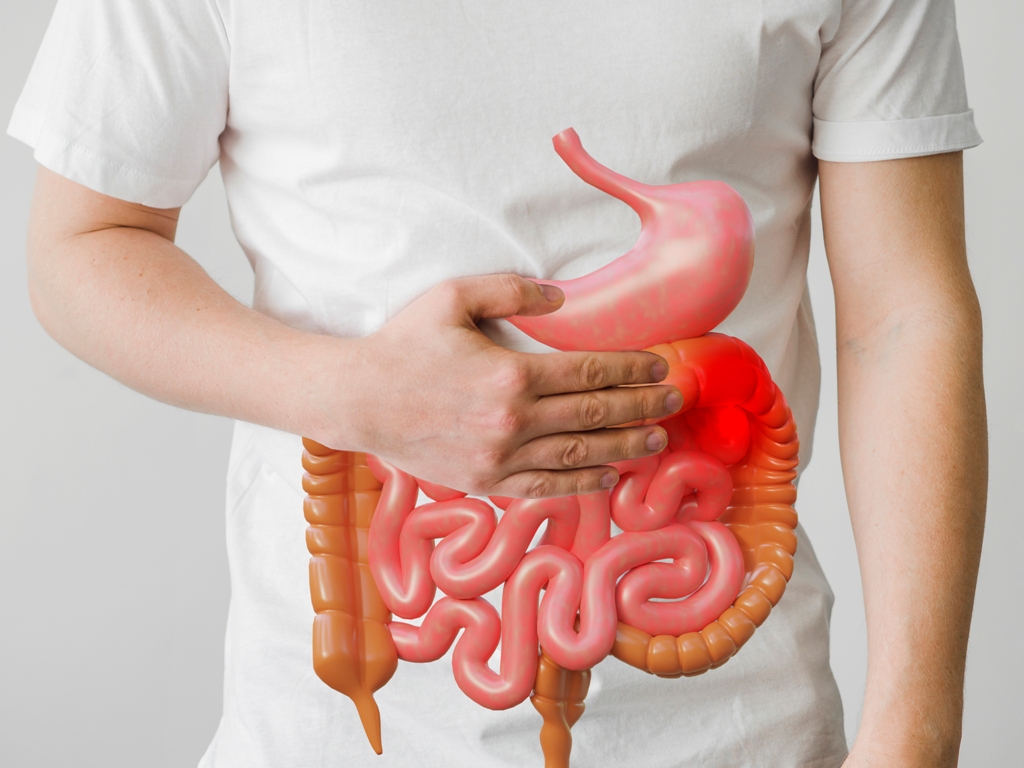Restoring gut health after experiencing stomach flu is crucial for returning to optimal well-being. The disruption caused by stomach flu can have lasting effects on your digestive system, but with the right approach, you can help your gut recover efficiently. In this comprehensive guide, we’ll explore various strategies and natural remedies to restore gut health after stomach flu.
Table of Contents
- Understanding Stomach Flu
- Importance of Gut Health
- Recovering from Stomach Flu
- Restoring Gut Health Naturally
- Lifestyle Practices for Gut Health
Key Takeaways
- Stomach flu can disrupt gut health, leading to digestive issues and nutrient absorption problems.
- Recovery from stomach flu involves rest, hydration, and gradual reintroduction of bland foods.
- Probiotics, prebiotics, and healing foods play a crucial role in restoring gut health naturally.
- Managing stress and engaging in regular exercise are beneficial for overall gut health.
Understanding Stomach Flu
Stomach flu, or viral gastroenteritis, is a common illness characterized by inflammation of the stomach and intestines. Caused by viruses such as norovirus or rotavirus, stomach flu spreads through contaminated food, water, or contact with infected individuals. Symptoms include nausea, vomiting, diarrhea, abdominal pain, and fever. While the illness typically lasts for a few days, it can leave the gut vulnerable to further complications.
Causes of Stomach Flu
The primary cause of stomach flu is viral infection, with norovirus being the most common culprit. This highly contagious virus spreads easily in environments such as schools, hospitals, and cruise ships. Rotavirus is another virus responsible for stomach flu, particularly in young children. Contaminated food and water can also harbor viruses that lead to gastrointestinal illness.
Symptoms and Duration
The symptoms of stomach flu typically appear one to three days after exposure to the virus. Nausea and vomiting are often the first signs, followed by diarrhea, abdominal cramps, and fever. Most people recover from stomach flu within two to three days, although some may experience symptoms for up to a week.
Impact on the Gastrointestinal Tract
Stomach flu can wreak havoc on the gastrointestinal tract, causing inflammation and irritation. The lining of the stomach and intestines becomes inflamed, leading to symptoms such as nausea, diarrhea, and abdominal pain. Disruption of the gut microbiome can also occur, affecting the balance of beneficial bacteria necessary for proper digestion and immune function.

Importance of Gut Health
The gut plays a crucial role in overall health, influencing everything from digestion to immune function. A healthy gut microbiome is essential for maintaining proper balance and preventing digestive disorders, autoimmune diseases, and inflammation. When gut health is compromised, it can lead to a variety of health problems.
Role of the Gut Microbiome
The gut microbiome consists of trillions of bacteria that reside in the digestive tract. These bacteria play a vital role in digestion, breaking down food and absorbing nutrients. They also help regulate the immune system and protect against harmful pathogens. An imbalance in the gut microbiome, known as dysbiosis, can contribute to digestive issues and other health problems.
Connection to Immune Function
The gut is home to a significant portion of the body’s immune system, with specialized cells and tissues that help defend against pathogens. A healthy gut microbiome is crucial for proper immune function, as it helps regulate inflammation and prevent the growth of harmful bacteria. Imbalances in gut bacteria can weaken the immune system, making the body more susceptible to infections.

Effects of Disrupted Gut Health
When gut health is compromised, it can lead to a variety of digestive issues and health problems. Symptoms of poor gut health may include bloating, gas, diarrhea, constipation, and abdominal pain. Chronic inflammation in the gut can also contribute to autoimmune diseases, such as Crohn’s disease and ulcerative colitis.
Recovering from Stomach Flu
Recovery from stomach flu involves restoring balance to the digestive system and supporting the body’s natural healing processes. While the illness may leave you feeling weak and depleted, there are steps you can take to aid recovery and promote gut health.
Rest and Hydration
During the acute phase of stomach flu, it’s essential to rest and stay hydrated. Vomiting and diarrhea can lead to dehydration, so it’s crucial to replenish lost fluids with water, electrolyte solutions, and herbal teas. Avoiding caffeine and alcohol can help prevent further irritation of the digestive tract.
Gradual Reintroduction of Foods
As your symptoms subside, you can begin to gradually reintroduce bland, easy-to-digest foods into your diet. Bananas, rice, applesauce, and toast (BRAT diet) are gentle on the stomach and can help alleviate digestive discomfort. Avoid spicy, fatty, or highly processed foods until your stomach has fully recovered.
Importance of Nutrient-Rich Foods
Nutrient-rich foods are essential for supporting overall health and promoting recovery from stomach flu. Bone broth is rich in collagen and amino acids, which can help heal the gut lining. Ginger has anti-inflammatory properties that can soothe digestive discomfort, while oats provide soluble fiber to support healthy digestion.
Restoring Gut Health Naturally
After recovering from stomach flu, it’s essential to focus on restoring balance to the gut microbiome and supporting optimal digestion. Natural remedies such as probiotics, prebiotics, and healing foods can help replenish beneficial bacteria and promote gut healing.
Probiotics and Prebiotics
Probiotics are beneficial bacteria that can help restore balance to the gut microbiome. Fermented foods such as yogurt, kefir, sauerkraut, and kimchi are rich sources of probiotics. Probiotic supplements may also be beneficial, especially if you’ve recently taken antibiotics or experienced digestive issues.
Prebiotics are non-digestible fibers that serve as fuel for probiotics, helping them thrive in the gut. Foods rich in prebiotics include garlic, onions, leeks, asparagus, and bananas. Including a variety of prebiotic-rich foods in your diet can help support a healthy gut microbiome.
Healing Foods and Nutrients
In addition to probiotics and prebiotics, certain foods and nutrients can help heal the gut lining and reduce inflammation. Bone broth is a valuable source of collagen, gelatin, and amino acids that support gut health. Ginger contains compounds with anti-inflammatory and antioxidant properties, making it beneficial for soothing digestive issues.
| Food | Benefit |
|---|---|
| Bone Broth | Rich in collagen and amino acids; supports gut healing |
| Ginger | Anti-inflammatory and antioxidant properties; soothes digestive discomfort |
| Bananas | Rich in potassium and pectin; gentle on the stomach |
Lifestyle Practices for Gut Health
In addition to dietary changes, certain lifestyle practices, including how to restore gut health after stomach flu, can support long-term gut health and prevent future digestive issues. Managing stress and engaging in regular exercise are two key factors that can positively impact gut health.
Stress Management
Chronic stress can have detrimental effects on gut health, leading to inflammation and digestive disturbances. Practicing relaxation techniques such as meditation, deep breathing, and yoga can help reduce stress and promote overall well-being.
Regular Exercise
Physical activity is essential for maintaining healthy gut motility and supporting proper digestion. Aerobic exercise, yoga, and strength training can all benefit gut health by reducing inflammation and promoting circulation.

Frequently Asked Questions
1. How long does it take to recover from stomach flu?
The duration of recovery from stomach flu can vary depending on the individual and the severity of the illness. In general, most people recover within a few days to a week. It’s essential to rest, stay hydrated, and avoid irritants to aid the recovery process.
2. Can you eat yogurt after stomach flu?
Yes, yogurt can be beneficial after recovering from stomach flu. Yogurt contains probiotics, which are beneficial bacteria that can help restore balance to the gut microbiome. However, it’s essential to start with small amounts and opt for plain, unsweetened yogurt to avoid aggravating the stomach.
3. What are the best probiotics for gut health?
The best probiotics for gut health may vary depending on individual needs and preferences. Lactobacillus acidophilus, Bifidobacterium bifidum, and Saccharomyces boulardii are commonly recommended strains for supporting digestive health. It’s essential to choose a high-quality probiotic supplement or incorporate probiotic-rich foods into your diet for optimal results.
4. Is it normal to have diarrhea after stomach flu?
Yes, diarrhea is a common symptom of stomach flu. Viral gastroenteritis can lead to inflammation of the gastrointestinal tract, resulting in loose or watery stools. While diarrhea is unpleasant, it’s the body’s way of eliminating the virus and toxins from the digestive system. Staying hydrated and resting can help alleviate symptoms and aid recovery.
5. What foods should you avoid after stomach flu?
After experiencing stomach flu, it’s essential to avoid foods that may irritate the digestive system and exacerbate symptoms. Spicy, fatty, or highly processed foods should be avoided, as they can be difficult to digest and may further upset the stomach. It’s best to stick to bland, easy-to-digest foods such as bananas, rice, applesauce, and toast until the stomach has fully recovered.
Conclusion
Restoring gut health after stomach flu is essential for returning to optimal well-being and preventing future digestive issues. By understanding the causes and symptoms of stomach flu, as well as the importance of gut health, you can take proactive steps to support your body’s natural healing processes.
Recovery from stomach flu involves rest, hydration, and gradual reintroduction of bland foods. Incorporating probiotics, prebiotics, and healing foods into your diet can help replenish beneficial bacteria and promote gut healing. Additionally, managing stress and engaging in regular exercise are crucial for maintaining long-term gut health.
By following these recommendations and listening to your body’s needs, you can restore balance to your gut microbiome and promote overall well-being. Remember to consult with a healthcare professional if you have any concerns or persistent symptoms.






